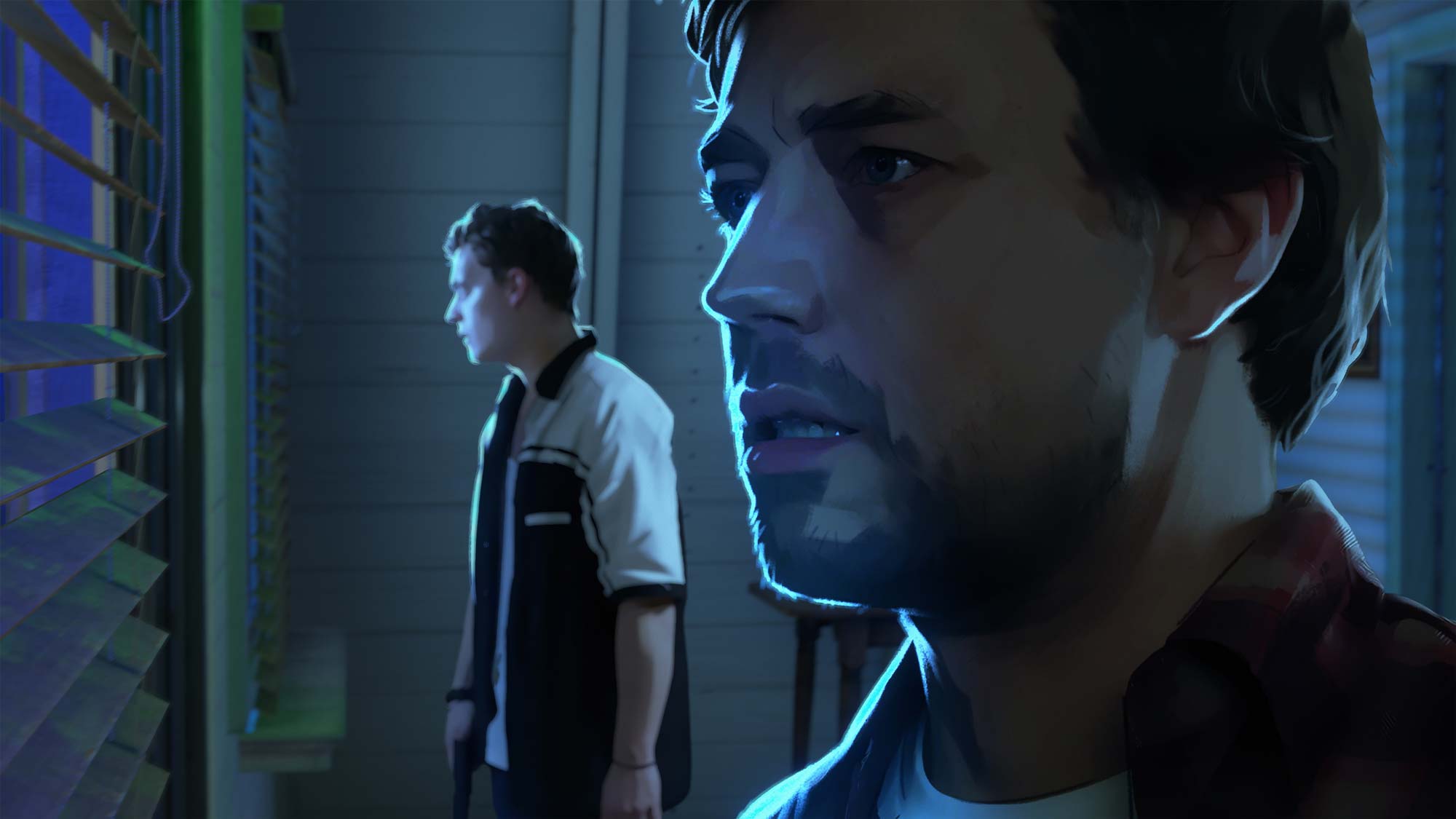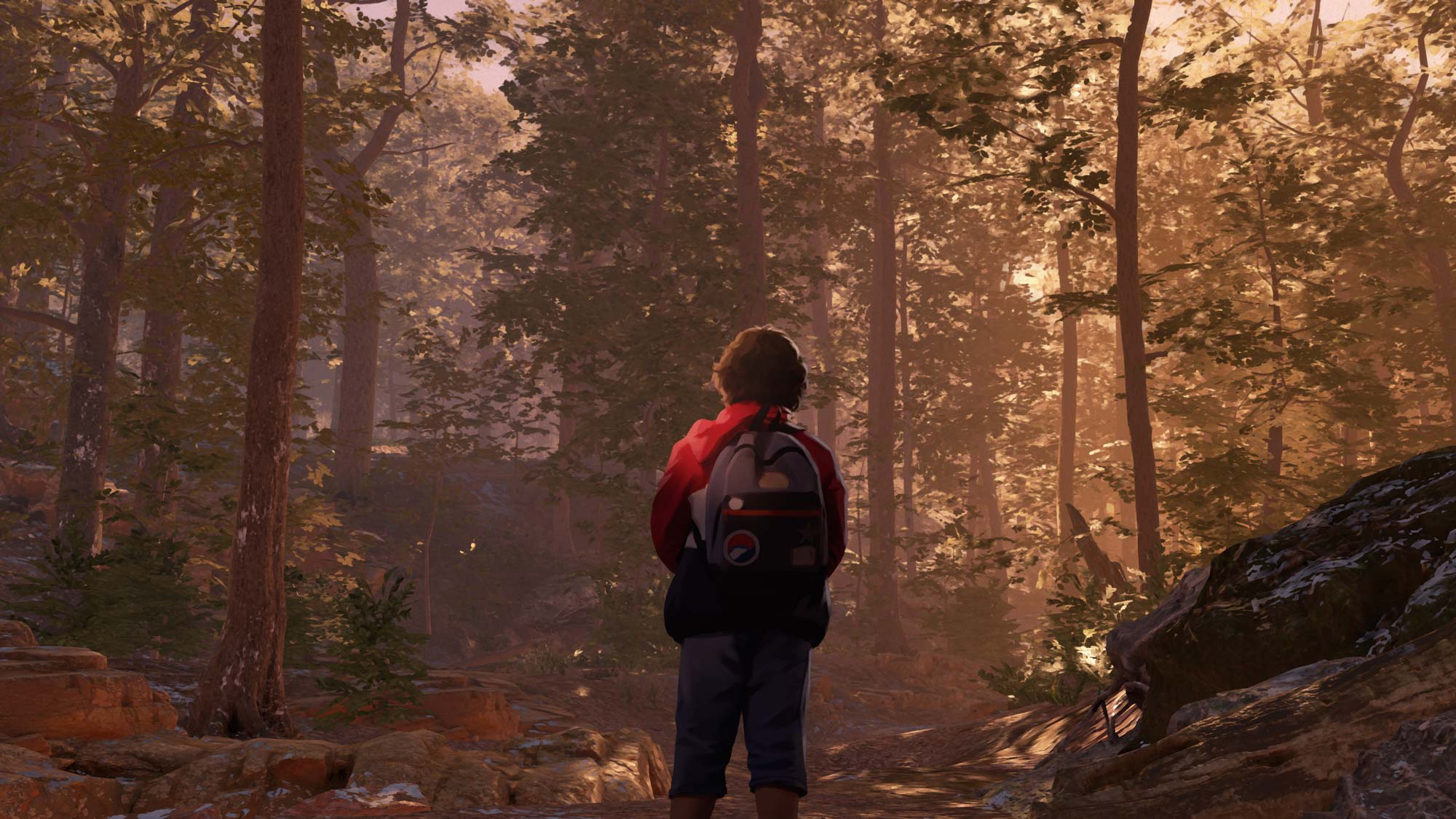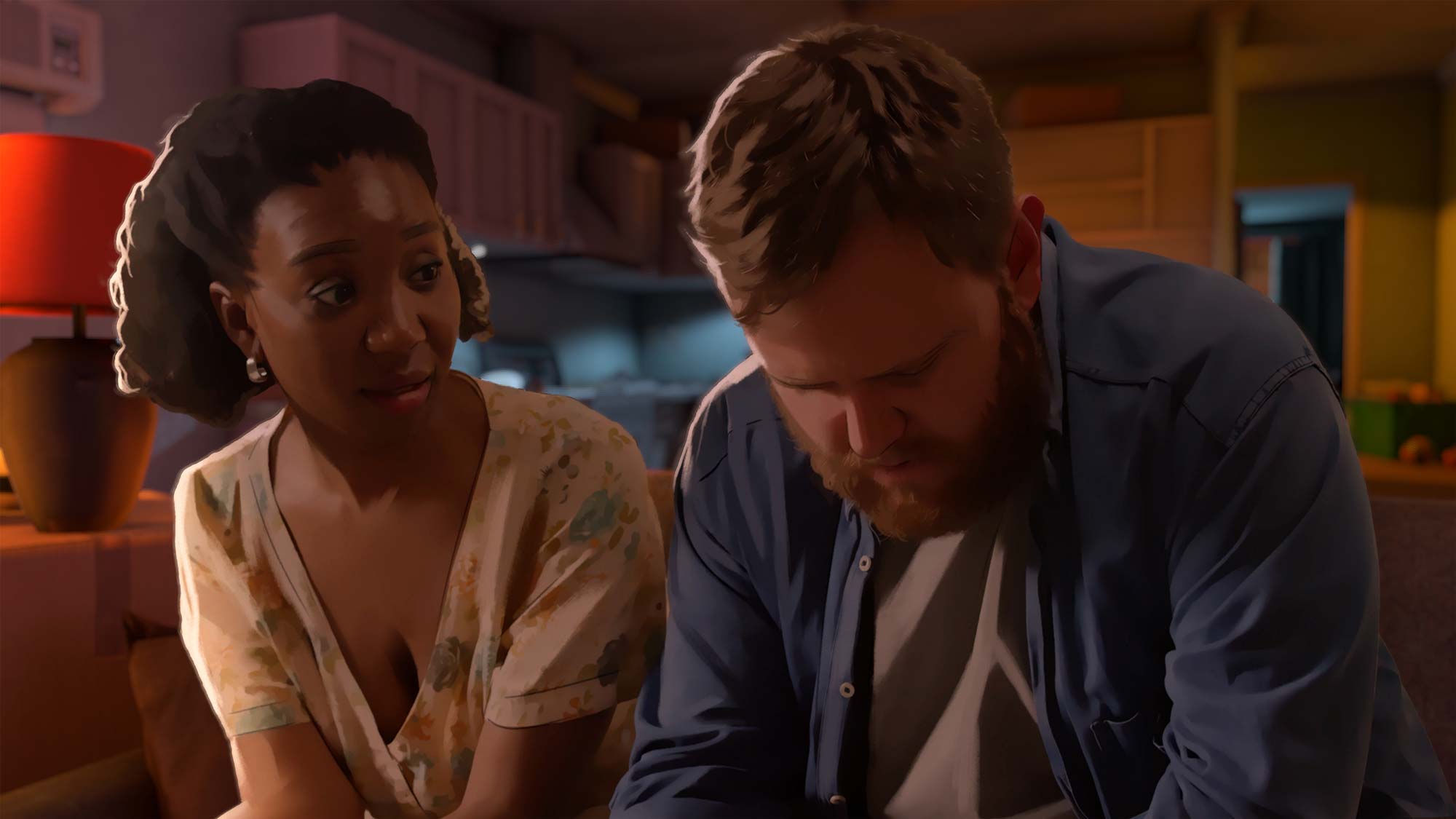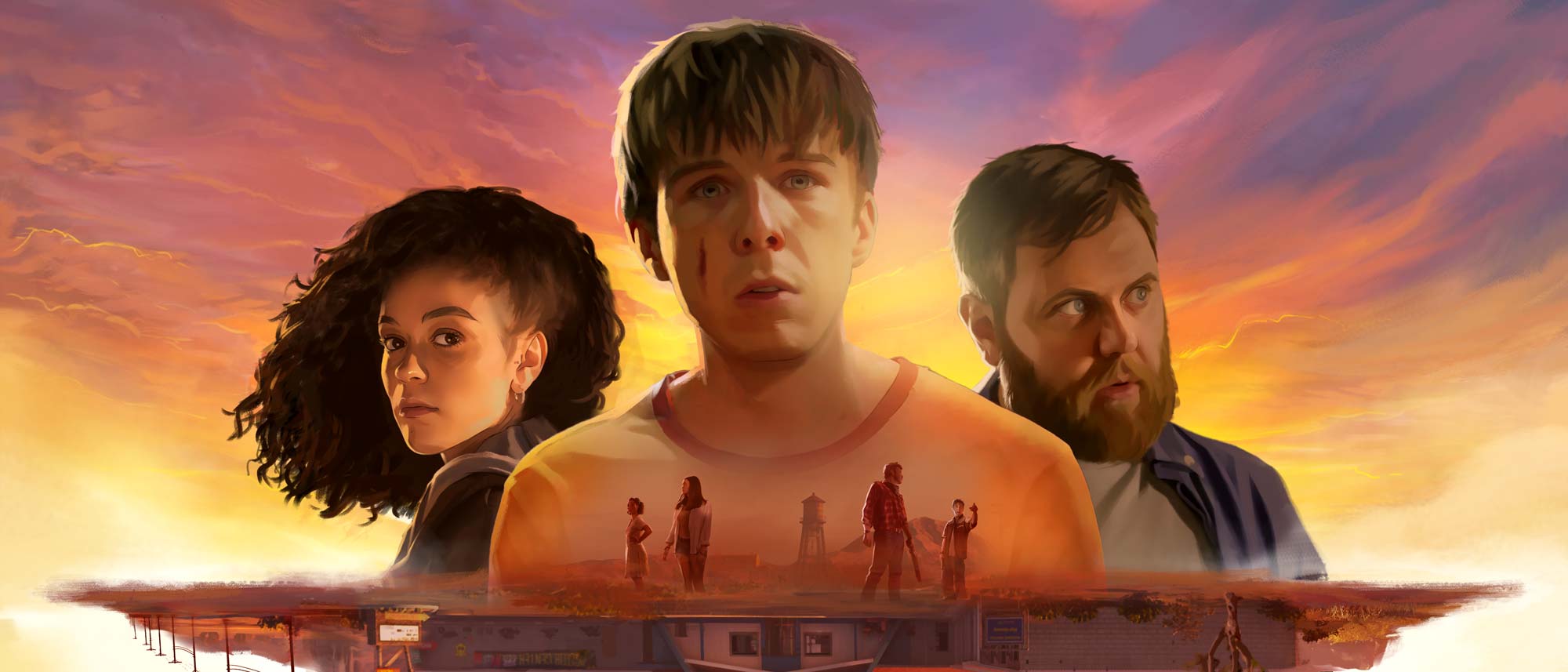Laptop Mag Verdict
As Dusk Falls is a solid attempt to breathe some life into interactive dramas at the cost of the player's enjoyment.
Pros
- +
Solid story and performances from cast
- +
Lots of possibilities in branching dialogue
- +
Unique visuals
Cons
- -
Visual style muddies action
- -
Very limited control given to player
Why you can trust Laptop Mag
I believed I had seen most of what the modern interactive drama had to offer before I got my hands on As Dusk Falls, the debut title from INTERIOR/NIGHT, a studio of ex-Quantic Dream developers. An offshoot born from traditional adventure games, the filmic subgenre gained a significant amount of critical attention and traction in the 2010s largely due to titles like Heavy Rain and the Life is Strange series.
Games of this ilk stressed realism, whether in tone or visual fidelity, and decision-making that promised consequential storytelling, making them de facto vehicles for "mature" stories. As they settled into this groove, the formula for these games became standardized, which left me with a single question in mind while playing As Dusk Falls: How does this game mix things up?
The answer, it turns out, is a double-edged sword. As Dusk Falls does breathe some freshness into the genre and pushes the potential of branching dialogue and paths quite far. It zones in on minutiae in the way these interactive dramas have rarely done, making for a satisfying rollercoaster of consequences as a player's story unfolds.
The game's cast put on admirable performances and explore some themes that even this famously heavy subgenre doesn't tackle all that often. It does all of this while looking distinct from its peers. However, the game's narrative cracks under the pressure of the developer's mission, and narrows the player experience in order to deliver. While As Dusk Falls sets itself apart in visuals, its art harms the game more than it helps, muddying the vision of this otherwise promising game. It's tough to advocate this for one of the best Xbox Series X games or best PC games pages.
If looks could kill
The most immediate distinction in As Dusk Falls is its style. As Dusk Falls boasts some of the most interesting art direction I've seen in a while, realizing its characters in the vein of a motion comic. It's a decision that never quite sat right but intrigued me nonetheless. Unfortunately, this intrigue proved to be short-lived, and the move felt more alienating the further along I got into the game.

Environments across the game are rendered in a 3D engine, and you'll frequently see items with physics move across them, like a globe in an early scuffle. The cast, however, are completely immobile portraits who, rather than fluidly commit an action, often stand there in a static pose until they transport forward. This lends the cast an otherworldly quality that made it near impossible for me to connect to them, and lead to more than one unexpected (and surely unintended) moment of sheer comedy that undercut the game's central drama.
For example, a firefight breaks out at one point and while the moment is obviously dripping with intensity and drama, what sticks out most to me is the absolutely baffling image of a character (effectively rendered like a cutout) being swapped out for another as they popped out of cover to fire shots back at someone else only to duck back down. It's messy and I think that's the point, given the game's central theme of collision, but it works in practice far less than it does in theory.
In more physical scenes, like a chase sequence or a fist fight, the motion comic aesthetic just obfuscates the action and dampens the impact of a landing blow, or a character taking a bad fall. In film and film-adjacent mediums, bad editing can and does obscure a scene's choreography, but in this game it isn't even haphazard editing or poor routine that accomplishes that. It's instead a conscious creative choice that ultimately hurts the characters’ repeated attempts at connecting with the world around them and the people whose orbits they smack into.
The game's cinematography tries to adapt to the almost supernatural quality of its unfilmable subjects. While SFX is sometimes layered onto particular scenes to entrench players in a certain mindset, the bottom line remains that I largely felt disconnected from As Dusk Falls' cast and their surroundings because of the implementation of this style.
On the rails
While you're playing As Dusk Falls, you might also realize how little you're actually "playing" it. This was easily the most disappointing discovery for me. As an interactive drama, I want to feel a synergy with the environment and feel like a part of the narrative. After all, the marketing around these titles so frequently touts how much players have agency over their choices and stories by the conclusion.
Unfortunately, As Dusk Falls instead unfolds more like a TV show with the occasional cameo of a button prompt. I'd often just lay my controller down on the table in front of me just waiting for a dialogue choice to pop up or to have to flick my analog stick to the left during the (nearly impossible to fail) quick time events. Scarce few scenes let me move my cursor around to investigate my surroundings, but otherwise I could never freely move around. I could never pull a character aside for a conversation that wasn't mandated by the narrative. I couldn't drink in the time and place, which is a shame considering how much As Dusk Falls emphasizes both.

The story spans more than a decade (beginning in 1998 and concluding by 2012), constantly flits between perspectives forwards and backwards in time around the central events of the story, and takes characters to various US states. But you'd be hard-pressed to recall any of it intimately because it largely feels like someone else's journey rather than your own.
The result is that As Dusk Falls remains laser-focused on its narrative at the cost of almost any sense of ownership. On the way to realizing this vision, As Dusk Falls mostly seems to lose sight of players, relegating them to the unwelcome role of a spectator to an HBO-like miniseries.
More choices than ever
As far as branching narratives go, As Dusk Falls is more than accommodating. When comparing playthroughs with a friend, we came across countless similarities, but also glaring omissions from each other's stories. Whole beats disappeared based on what digressions we took, and while I can't say I loved my time with the game all that much, I did get a kick out of learning about the various instances they got to see that I didn't and vice versa.
If you have FOMO (fear of missing out), As Dusk Falls' most forward-thinking feature is a story tree that spells out exactly what you saw and the vast opportunities you missed out on. What's even better is that players can pick certain parts of the tree to replay and make different choices, so there's an easy way to go chasing for alternate paths should you seek it. I dabbled in it just enough to see sequences I believed were concrete get blown wide open, and this is ultimately the greatest promise of As Dusk Falls. If the vast (if not endless) space of possibilities in stories and their trajectories is the kind of thing that excites you, I'm sure As Dusk Falls would make a great case study.
While that overabundance of story is tantalizing for many, what really struck me was how much harder the choices in As Dusk Falls landed compared to similar games. I've had choice paralysis in games as far back as Telltale's The Walking Dead, but there's an abstraction afforded to the consequences of a fictional zombie apocalypse that don't apply to As Dusk Falls. The hardest choices I had to make in this game asked me to do something altogether more unique: be a person, not a player.

Should I take the steps, no matter how difficult, to face the problem that's rotting a marriage from the inside out and should I preserve it once those demons have been excised? Do I punish characters whose intentions I've understood time and time again, but ruin the lives they crash into? For years, I've been subconsciously trying to game these systems, looking for the best ending rather than one that feels personally satisfying, like saving Arcadia rather than Chloe in Life is Strange, no matter how little I wanted to let her go. But I couldn't turn up any easy answers this time around. There were no slam dunks or gimmes. And that is perhaps As Dusk Falls' crowning achievement.
The game is best when it leans into this grounded but difficult approach to decision-making, but as time goes on, the narrative becomes more unwieldy and more liable to dramatic flourishes and flair that only do it a disservice. It's definitely a game that is front-loaded with its better material, but the occasional reminder of As Dusk Falls' ability to be great dots the horizon in the latter half, too.
Fun with friends
Here's an endorsement I didn't think I'd make: play this game once for yourself to take in the story and then play again with friends. The multiplayer functionality (which supports up to 8 players) is simple fun, charging players with the responsibility of democratically electing choices and being randomly selected for quick time events.
It's at the very least an excuse to see things from another perspective, and is bound to be at least a bit messy. If you play it once and think you have a hard time making difficult decisions, wait until a character's life hangs in the balance and you need to essentially whip votes to get a majority on your side. Or you deadlock on most decisions, meaning that the game has to randomize between the elected choices like the world's most stressful coin flip.
Bottom line
If there's a word that best captures As Dusk Falls for me, it's "mess." The story, about a botched robbery-turned-hostage and the subsequent decades of fallout, exudes this. The game stresses its casts' imperfections and the game wants you to relish in the countless ways any scene can go awry. The fallibility on display here is definitely part of the allure of As Dusk Falls and for that alone, I'd encourage getting around to it.
However, this messiness bleeds over into other facets of the game, namely its presentation, in ways that aren't entirely flattering. And for all the strides it does take, I can't help but be disappointed at how little the game trusts the players to do anything, opting to strip them of most any semblance of control in order to meet its goals. While understandable, it seems like a typical "one step forward, two steps back" kind of deal that only hurts my chances to lose myself in the game's world and characters further.
Nonetheless, should you play As Dusk Falls, you'll find a modestly engrossing, if unoriginal, take on the interactive drama genre (and a neat party game) that doesn't overstay its welcome.

